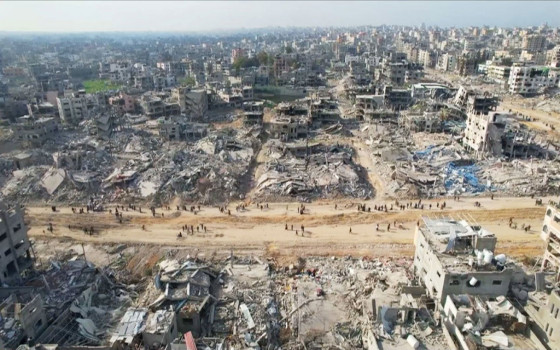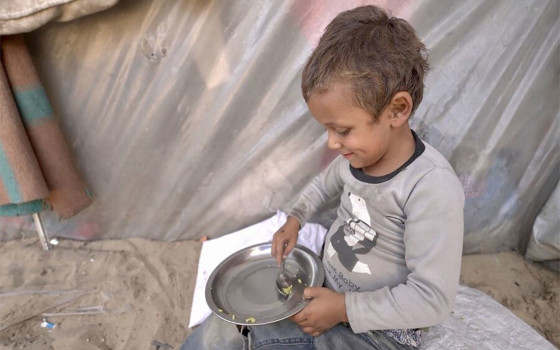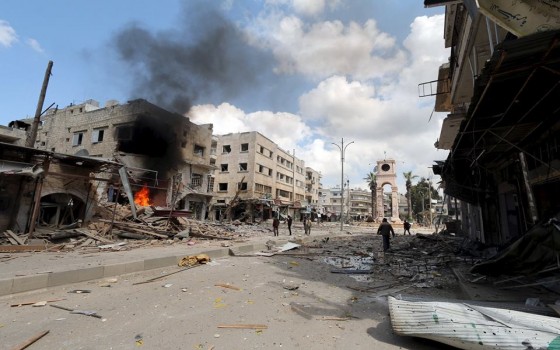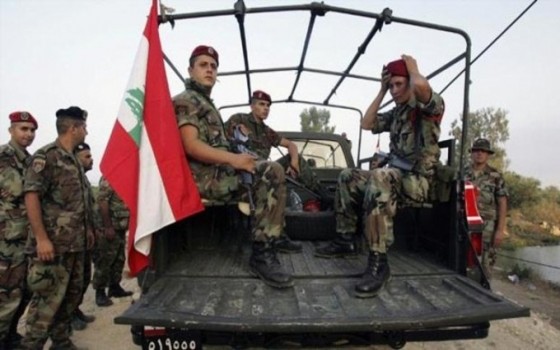UNRWA official: The sound of bombs in Gaza has been replaced by signs of joy, and the consequences of implementing the law banning the agency could be devastating

- Europe and Arabs
- Tuesday , 21 January 2025 10:45 AM GMT
Gaza: Europe and the Arabs
After the ceasefire in Gaza came into effect, “there are already big changes in the streets of the Strip, where children play and people can move around without the fear they have lived with for more than 15 months,” this is how the Deputy Director of the United Nations Relief and Works Agency for Palestine Refugees (UNRWA) in Gaza described the situation on the ground. According to the UN daily news bulletin, UN official Sam Rose was speaking in an exclusive interview with the UN News correspondent in Gaza, where he said: “The sound of the bombs has stopped, and the sound of the drones has stopped. This has been replaced by signs of life, joy and a return to normal life.” Rose also said that people are finally able to move north through the checkpoints that separated southern Gaza from the rest of the Strip.
He pointed out that people in the south and north of the Strip are returning to their homes, adding: “They are returning to see what is left, and what they can salvage to establish a foothold in their properties in the hope that they will be able to rebuild. But this process will be long, complicated and very expensive.”
Thousands of Trucks
The UN official also pointed to the influx of humanitarian aid since yesterday, noting that "the needs are enormous." He added that the focus is now on bringing supplies that have been stuck outside Gaza for months due to problems at crossing points and looting crimes.
He pointed to the presence of thousands of trucks loaded with food aid, flour, basic shelter supplies, clothing, tents and blankets. He stressed that UNRWA had aid networks and response programs in place before the war, and they are now operating, adding: "We have the capacity to continue providing this aid if it continues to flow."
More needed
The deputy director of UNRWA affairs in Gaza stressed the need to do more in addition to distributing aid.
He added: "We cannot reduce this operation to aid trucks. People need a chance to recover. This requires more than just aid trucks. We need supplies to repair water systems, we need health care systems and schools to get back up and running."
Rose said that people also need time and resources "to deal with the trauma, loss and grief they have faced over the past 16 months." No alternative to UNRWA
The UN official warned that the consequences of the Israeli law – which would halt UNRWA’s work in the occupied Palestinian territory – could be devastating not only for the agency and the Palestine refugees who rely on its services, “but for the entire population of Gaza.”
“No one is in a position to replace UNRWA’s services at this point in time,” Rose said. “The risks, not only to UNRWA, not only to Palestine refugees, but also to the success of the ceasefire will hang in the balance if UNRWA is not able to operate by the end of this month.”
He called on all member states to do everything they can to stop the implementation of these laws.
He stressed that UNRWA staff, all humanitarian workers, international NGOs and local civil society are doing everything they can “to make this ceasefire work, to bring a sense of normalcy to people’s lives, so that we don’t wake up hearing that children and newborns are dying from malnutrition or hypothermia. We want people to start rebuilding their lives, to start living their lives with hope for a better future.”














No Comments Found